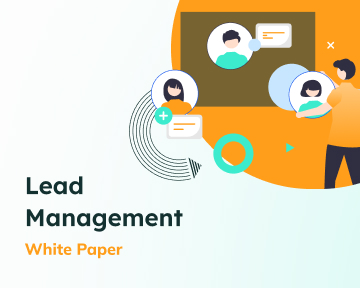Marketing Qualified Leads (MQL) and Sales Qualified Leads (SQL) are sales and marketing terms used to classify and prioritise potential customers based on their level of engagement and readiness to move through the sales funnel towards purchase.
Let’s delve deeper into this matter for a closer examination.
Marketing Qualified Leads (MQL)
- Download of a whitepaper
- Signed up for a webinar
- Subscribed to newsletters
An MQL becomes a Sales Qualified lead (SQL) once they are ready for conversation and actions have been taken by the sales team. The transition from MQL to SQL typically involves direct interaction between the marketing and sales teams to qualify the lead’s readiness and potential fit for the company’s products.
Sales Qualified Leads (SQL)
An SQL is a prospect who has been further evaluated by the sales team and has purchase intent in the near future. The biggest difference between MQL and SQL is that SQLs present an existing intent to make a purchase. The sales team evaluates SQLs to determine if they match the ideal customer profile, have a genuine need, budget, authority to make decisions, and a timeline for purchasing. Compared to MQLs, SQLs are further along in the buying journey.
For example, a good way of determining an SQL via engagement is if the lead repeatedly visits your website and downloads a white paper which is aimed at a consideration stage in the buyer journey and about making a decision.
Understanding MQLs and SQLs is especially important for the sales team as it saves ample resources so that they can focus on the right prospects that have a higher chance of conversion at the right time.
How leads’ transitions from MQL to SQL
Sales and marketing departments work together to define actions that qualifies a potential customer to move forward within the sales process. In this process, key behaviours of a lead is identified and also scored based on weightage of the importance of the action taken. This process of assigning values to prospect behaviour is also known as Lead Scoring.
Criterias used for lead scoring:
- The amount of information a lead provided to your company: can indirectly reflect higher interest in your service
- Available budget: bigger budget = higher score
- Business size
- Job title: determines decision-making power
- Pages visited: frequency indicates the level of interest, certain pages like product features or pricing may indicate consideration to purchase
- Downloads and its type: different lead generation offers may indicate higher purchase potential, such as sign up for live demo
- Engagement rate: with lead nurturing emails, social postings, media files etc
Lead Scoring criterias are subjective and often depend on the nature of particular businesses. You may notice that some criterias such as website visits or email engagement rate are often impossible to evaluate without digital tools. Behavioural Marketing Automation and Lead Generation softwares such as “Lead Gen and CRM” by Constant Contact has the ability to track prospects behaviour when it comes to interaction with company digital marketing assets. Combined with one of its key features, Lead Scoring, it enables you to customise your approach to leads depending on how they engage with your content.


What's next for you?
The concept of MQL and SQL are now essential for companies whose business is heavily dependent on customers sourced online. Considering the growth of e-commerce and rapid digitalisation, there are no doubts on its relevance to the majority of businesses.
Understand your potential clients more with our Lead Management white paper and discover more Marketing Automation features that could benefit your business from our blog post!





